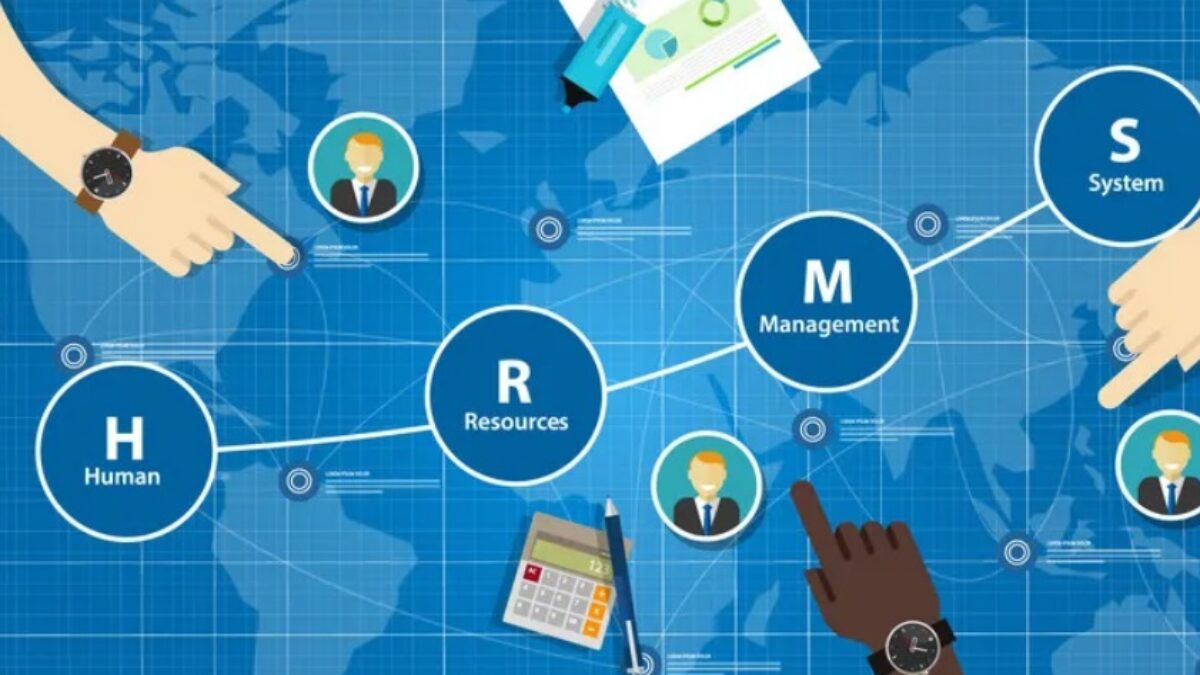How Can Human Resource Management Systems (HRMS) Support Remote Work Policies?
With the rise of remote work policies, it has become essential for companies to utilize Human Resource Management Systems (HRMS) to support these policies. HRMS helps in effectively managing geographically dispersed teams, enhancing employee productivity, and contributing to the achievement of company goals.

In today’s business world, remote work policies have become an integral part of the strategies of many companies, whether small or large. These policies provide employees with the flexibility to work from anywhere, which enhances their satisfaction and increases their productivity. However, realizing these benefits requires effective human resource management to ensure coordination and discipline among geographically dispersed teams. This is where Human Resource Management Systems (HRMS) play a crucial role in supporting these policies. HRMS offers innovative solutions for managing employees and providing them with the necessary services efficiently and effectively, regardless of their location. By offering advanced tools for managing remote work, such as performance tracking, payroll management, and internal communication, these systems help create a cohesive work environment that supports company goals and strengthens the success of remote
What is a Human Resource Management System (HRMS)?
A Human Resource Management System (HRMS) is a collection of tools and software applications designed to manage employee-related processes within organizations. This system encompasses a wide range of functions that contribute to improving human resource management, such as tracking employee records, managing payroll, evaluating performance, managing leave, employee training, and ensuring compliance with laws and regulations. HRMS is characterized by its ability to integrate with other systems within the organization, making it an essential part of the digital infrastructure of modern enterprises.
HRMS helps companies enhance the efficiency of human resource management and reduce the time and effort spent on daily administrative tasks. Through automation and data analysis, organizations can make better decisions based on accurate and comprehensive information about employee performance and productivity, thereby improving the work environment and increasing employee satisfaction.
The Shift Towards Remote Work Policies
In recent years, work environments have undergone significant transformations with the increasing adoption of remote work policies. These changes were not just temporary responses to global crises like the COVID-19 pandemic but have become an integral part of modern business strategies. Remote work policies enable companies to access a diverse pool of talent from various geographic regions, expanding their search for skilled professionals and opening up greater opportunities for growth and innovation.
Moreover, these policies offer employees greater flexibility in how and where they work, enhancing work-life balance. However, the shift towards remote work requires a robust infrastructure and advanced technological tools to ensure effective communication and smooth performance management. This is where Human Resource Management Systems (HRMS) come into play, providing the necessary tools to support and implement these policies efficiently while maintaining high levels of productivity and discipline.
The shift towards remote work policies is not just a passing trend; it is a natural evolution that reflects the changing expectations of employees and the needs of businesses in the digital age. Companies that successfully embrace these policies can foster a culture of innovation and offer better employee experiences, contributing to improved overall performance and the achievement of strategic goals.
What is the Role of HRMS in Supporting Remote Work?
Human Resource Management Systems (HRMS) play a crucial role in supporting and implementing remote work policies within companies. By providing a range of integrated tools and functions, these systems help overcome the challenges of managing geographically dispersed teams.
One of the most important functions offered by HRMS is the ability to monitor employee performance remotely. HR managers can track task progress and continuously evaluate performance with precision, ensuring adherence to set goals and standards. These systems also offer solutions for managing attendance and leave, making it easier for companies to organize work schedules and ensure employees comply with agreed-upon working hours.
Additionally, HRMS supports effective communication between employees and managers through interactive platforms that allow for seamless and instant information exchange. These systems also contribute to remote training and professional development, helping to maintain and enhance employee skills, even in non-traditional work environments.
HRMS also plays a significant role in managing payroll and incentives in a manner suited to the nature of remote work. Employees can easily access information about salaries and benefits, enhancing transparency in administrative processes and increasing employee satisfaction.
Thanks to these features, HRMS contributes to the efficiency and effectiveness of remote work policies, enabling companies to fully capitalize on this strategy and achieve the highest levels of productivity and job satisfaction.
HRMS and Remote Employee Management
With the increasing reliance on remote work policies, managing remote employees has become one of the biggest challenges facing companies. Human Resource Management Systems (HRMS) provide the necessary tools and solutions to facilitate this process and ensure effective and efficient management.
Through an HRMS, companies can monitor the performance of remote employees using advanced performance tracking tools and analytics. These systems provide detailed reports on work progress and achievements, helping to identify strengths and weaknesses and make data-driven decisions.
HRMS also contributes to the organized management of work schedules and leave, allowing employees to submit leave requests and track working hours through simple user interfaces. This enhances transparency and helps avoid issues related to time management.
Moreover, HRMS supports effective communication among remote teams through integrated communication tools such as internal email and group chats. These features help maintain continuous interaction and foster collaboration among employees, even when they are in different geographic locations.
HRMS also offers advanced capabilities for managing payroll and incentives, making it easier to accurately process payroll in alignment with remote work policies. This flexible management enhances employee satisfaction and provides a positive work experience.
In summary, HRMS plays a crucial role in enabling companies to efficiently manage remote employees, helping to balance productivity and flexibility while fostering a cohesive work environment.
HRMS and Ease and Flexibility of Access
Ease and flexibility of access are fundamental features offered by Human Resource Management Systems (HRMS), playing a vital role in enhancing the effectiveness of human resource management.
- Ease of Use: HRMS provides intuitive and user-friendly interfaces, allowing employees and managers to navigate various functions and features without complications. These systems offer advanced search tools and efficient filtering capabilities, helping users find and manage information quickly and efficiently. For example, employees can submit leave requests or update their personal information with just a few clicks, reducing the need for manual interaction and increasing the efficiency of administrative processes.
- Flexibility of Access: HRMS allows access to information and data from anywhere and at any time, thanks to its support for cloud technologies. This means that employees can access their personal accounts, view payroll details, or check performance records, even when they are outside the office. This feature supports remote work policies, enabling employees to interact with the system and meet their administrative needs without needing to be physically present at the workplace.
With these features, HRMS improves the user experience and enhances the efficiency of human resource management, positively impacting overall organizational performance and employee satisfaction.
Conclusion
In conclusion, it is clear that Human Resource Management Systems (HRMS) play a vital role in supporting remote work policies and achieving a balance between flexibility and productivity. By providing effective tools for performance management, communication, and payroll administration, these systems enhance the remote work experience, helping companies overcome the challenges associated with geographically dispersed teams.
Adopting HRMS is not just an investment in technology; it is an investment in improving performance and productivity and enhancing employee satisfaction. These systems provide the automation and transparency that companies need to achieve their goals and efficiently meet the needs of their employees.
By utilizing HRMS, companies can ensure they are not only responding to changes in the modern work environment but also excelling in providing a flexible and efficient work environment that supports growth and innovation. Ultimately, leveraging the capabilities of HRMS is a crucial step toward achieving success in the evolving business world, making it an essential tool in any successful business strategy.


